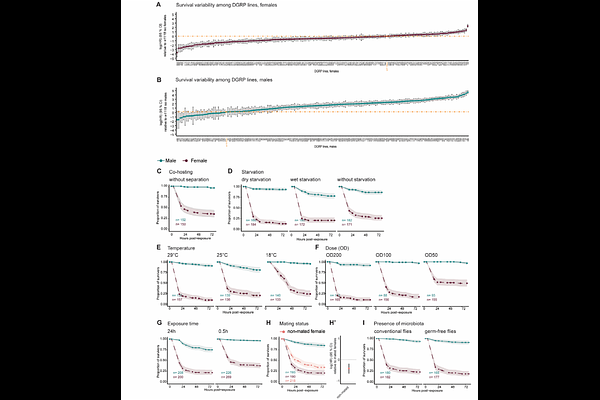Sex Differences in Drosophila Intestinal Metabolism Contribute to Sexually Dimorphic Infection Outcome and Alter Gut Pathogen Virulence

Sex Differences in Drosophila Intestinal Metabolism Contribute to Sexually Dimorphic Infection Outcome and Alter Gut Pathogen Virulence
Rubinic, M.; Arias-Rojas, A.; Martinez, K. A.; Klimek, W.; Paczia, N.; Alagesan, K.; Duneau, D.; Iatsenko, I.
AbstractSexual dimorphism in infection outcomes is a pervasive phenomenon, the underlying mechanisms of which remain incompletely understood. Here, utilizing Pseudomonas entomophila intestinal infection in Drosophila, we demonstrated that sex differences in intestinal redox processes contribute to female bias in susceptibility to gut infection. Female inability to overcome excessive pathogen-induced oxidative stress results in defecation blockage, pathogen persistence, and host death. Male flies exhibit increased carbohydrate metabolism and pentose phosphate pathway activity - a key antioxidant defense system. This allows males to withstand oxidative stress-induced defecation blockage and clear the pathogen from the intestine, resulting in survival. Additionally, P. entomophila showed increased expression of several virulence factors, including RNA-binding protein Hfq, in the female gut, contributing to female-biased virulence of P. entomophila. Thus, the effect of the gut metabolic environment on host defenses and pathogen virulence determines the sex differences in intestinal infection outcomes.